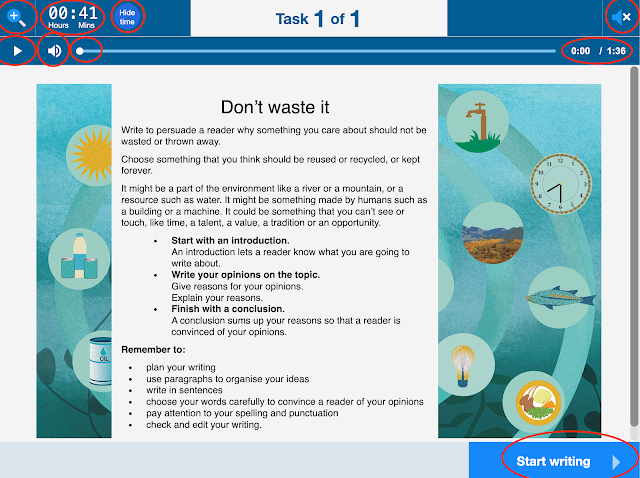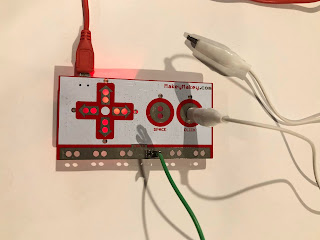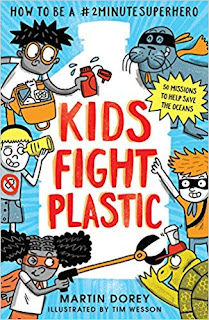Literacy and Digital Technology
What does Possum Magic by Mem Fox have to do with computational thinking and digital technologies?Possum Magic by Mem Fox is a story about a magic grandma that makes her grandson Hush become invisible.
To solve the problem they travel Australia looking for ways to make Hush visible again. Luckily the problem is solved for Hush as he consumes classically Australian foods. Strangely they need to travel to most of the capital cities to do it.
Getting children to visualise a journey and translate what they hear into a concrete experience requires computational thinking.
Getting children to visualise a journey and translate what they hear into a concrete experience requires computational thinking.
3 activities to integrate digital technologies in a literacy lesson.
K-2 Beebot Activity
Create algorithms to follow the trail of the food that Hush eats.
Educational content
- Algorithms
- Procedural texts
- Recounts
- Integrating digital systems
- Recounts
Resources
- Beebots or bluebots
- Clear mat or cardboard ruled up with 15min grid.
- Pictures of the foods consumed by Hush
Activity
- Using a clear mat place pictures under the plastic.
- Students are required to give instructions to get from one picture to the other.
- In the order the food gets eaten
- Favourite foods
- Document algorithms for the beebot to move between 2 images.
- Ask a friend to follow their procedural text
- Correct any errors.
- Algorithms
- Procedural texts
- Recounts
- Integrating digital systems
- Recounts
- Beebots or bluebots
- Clear mat or cardboard ruled up with 15min grid.
- Pictures of the foods consumed by Hush
- Using a clear mat place pictures under the plastic.
- Students are required to give instructions to get from one picture to the other.
- In the order the food gets eaten
- Favourite foods
- Document algorithms for the beebot to move between 2 images.
- Ask a friend to follow their procedural text
- Correct any errors.
Year 3-4 Ozobot activity
Create a map of Australia and have the Ozobots follow the trail of Hush around each capital city.
Educational content
- Algorithms
- Procedural texts
- Recounts
- Integrating digital systems
- Australian Geography - Capital cities
Resources
- Ozobots
- Textas
- Colour guides
- Paper or cardboard
Activity
- Students create a map of Australia (you could provide this blackline if you have limited time.
- Students are required to give instructions to follow the journey of Hush and his grandma.
- Document algorithms for the Ozobot to move around.
- Create a literary narrative of the Ozobot to recount the story.
- Video the journey of the Ozobot.
- Correct any errors.
Create a map of Australia and have the Ozobots follow the trail of Hush around each capital city.
Educational content
- Algorithms
- Procedural texts
- Recounts
- Integrating digital systems
- Australian Geography - Capital cities
- Ozobots
- Textas
- Colour guides
- Paper or cardboard
- Students create a map of Australia (you could provide this blackline if you have limited time.
- Students are required to give instructions to follow the journey of Hush and his grandma.
- Document algorithms for the Ozobot to move around.
- Create a literary narrative of the Ozobot to recount the story.
- Video the journey of the Ozobot.
- Correct any errors.
Year 3-6 Makey Makey activity
Create a poster or board game about the story of Possum Magic, following the trail or interpreting the story through a game. Makey Makeys are more suited to stage 2 digital technology outcomes but if you have next taught digital technology this may a starting point for year 5-6. Also good for differentiation right through to secondary level for special education.
Educational content
Resources
- Makey Makey
- Split Pins
- Textas
- Cardboard or Paper
Activity
- Students create a map of Australia (you could provide this blackline if you have limited time).
- Students are required to write scripts recounting or describing what happens in each capital city or integrating narrative story content into a game.
- Create a series of blocks in scratch.
- Record scripts.
- Set up the split pins on each city.
- Attach the makey makey.
- Ask a friend to text.
Create a poster or board game about the story of Possum Magic, following the trail or interpreting the story through a game. Makey Makeys are more suited to stage 2 digital technology outcomes but if you have next taught digital technology this may a starting point for year 5-6. Also good for differentiation right through to secondary level for special education.
Educational content
- Makey Makey
- Split Pins
- Textas
- Cardboard or Paper
- Students create a map of Australia (you could provide this blackline if you have limited time).
- Students are required to write scripts recounting or describing what happens in each capital city or integrating narrative story content into a game.
- Create a series of blocks in scratch.
- Record scripts.
- Set up the split pins on each city.
- Attach the makey makey.
- Ask a friend to text.
Exhibitions
Expos are an important way for students to show case their learning to the extended school community and parents. It provides an opportunity for students to explain their learning.
Once you have completed projects that have physical models they can be exhibited as an opportunity for schools to introduce parents to new ways of learning and demonstrate the value project learning in the classroom.
The role of exhibitions in student learning should not be underestimated as they provide an additional level of value to the learning process. Students then have an opportunity to present either formally as a presentation or informally at kiosks around a room. This requires students to demonstrate their understanding of the content area to people other than their teacher.
Once you have completed projects that have physical models they can be exhibited as an opportunity for schools to introduce parents to new ways of learning and demonstrate the value project learning in the classroom.
The role of exhibitions in student learning should not be underestimated as they provide an additional level of value to the learning process. Students then have an opportunity to present either formally as a presentation or informally at kiosks around a room. This requires students to demonstrate their understanding of the content area to people other than their teacher.







Comments
Post a Comment